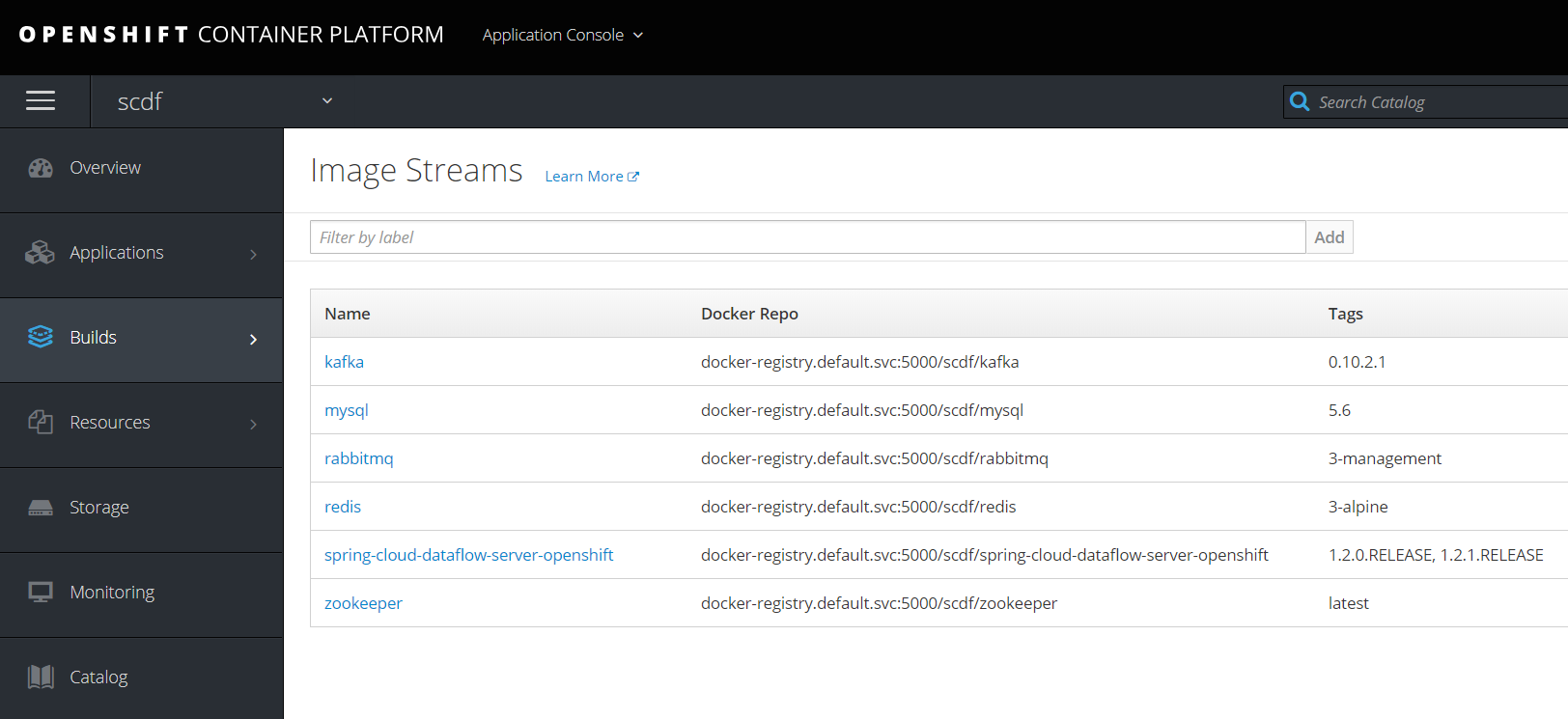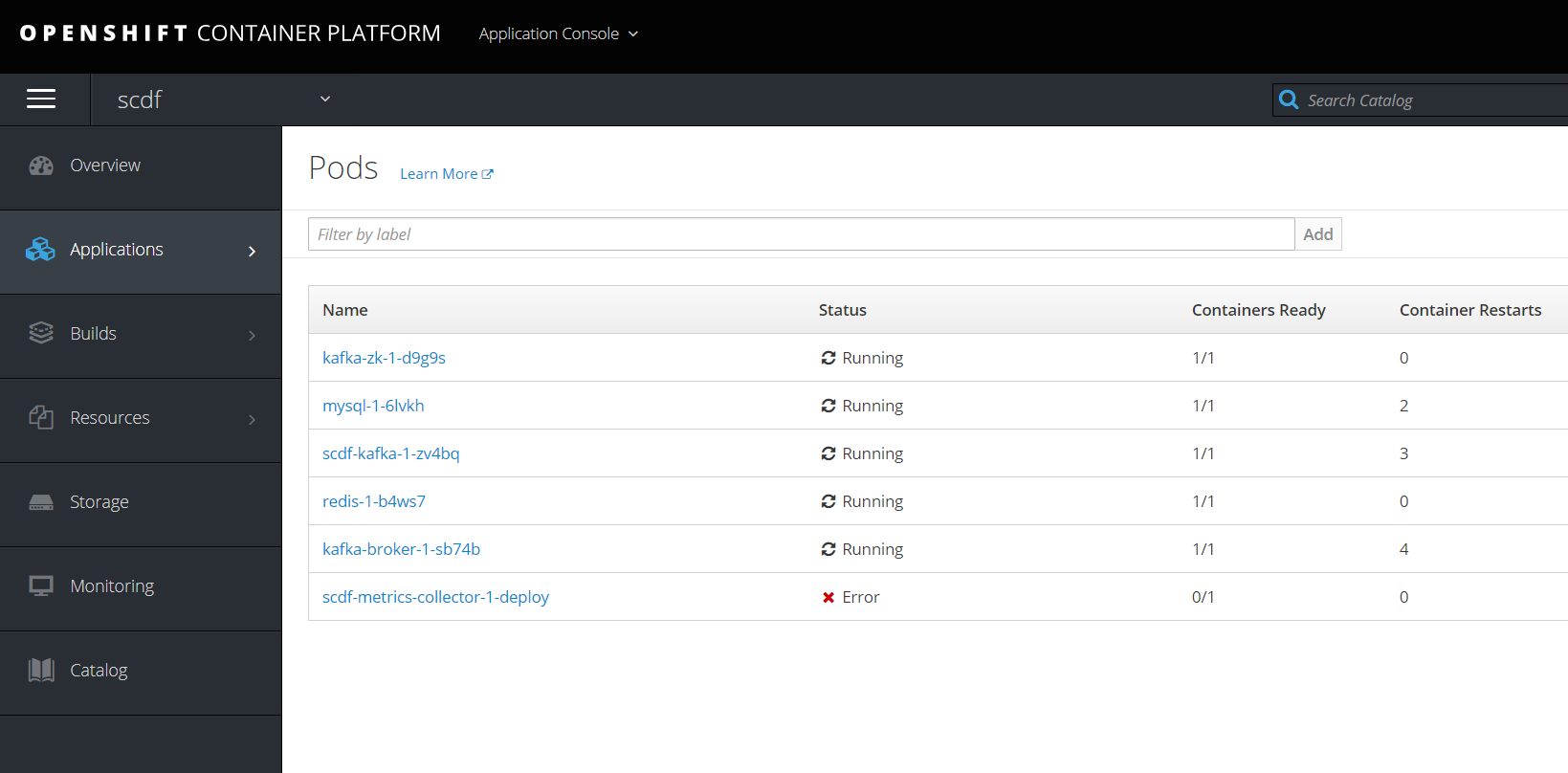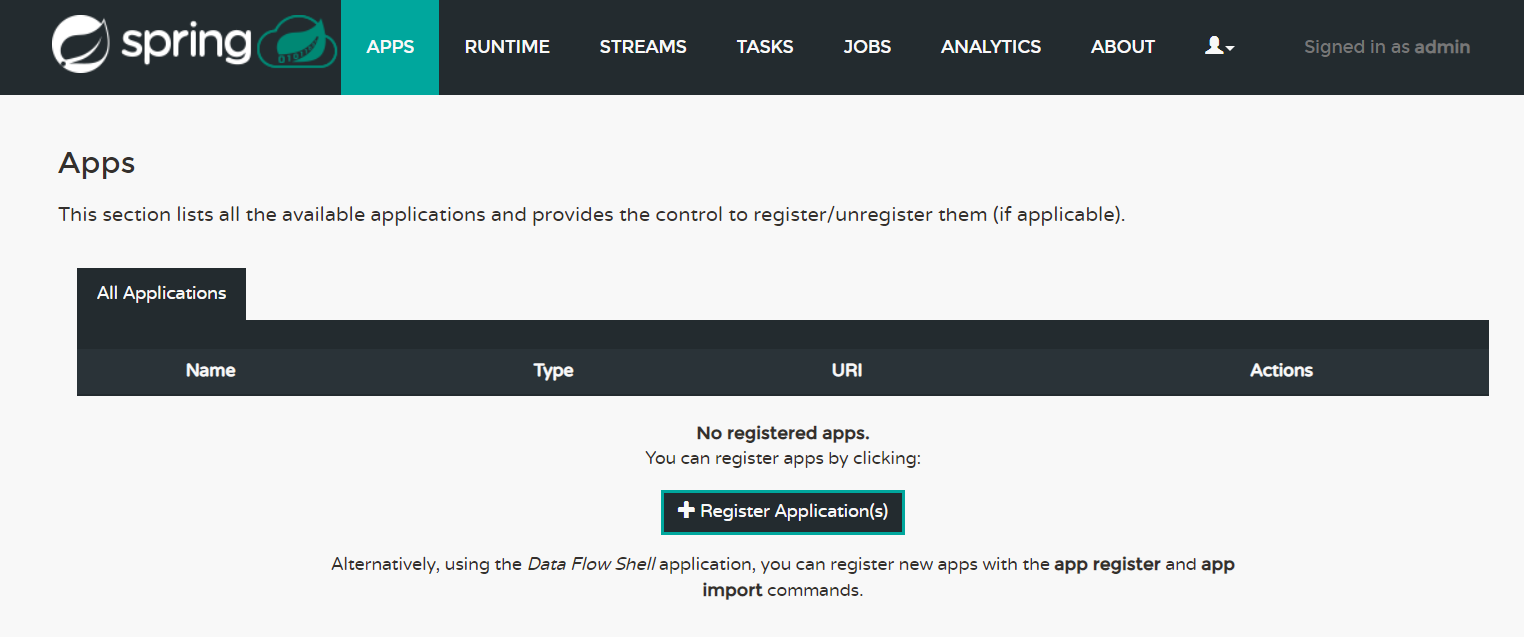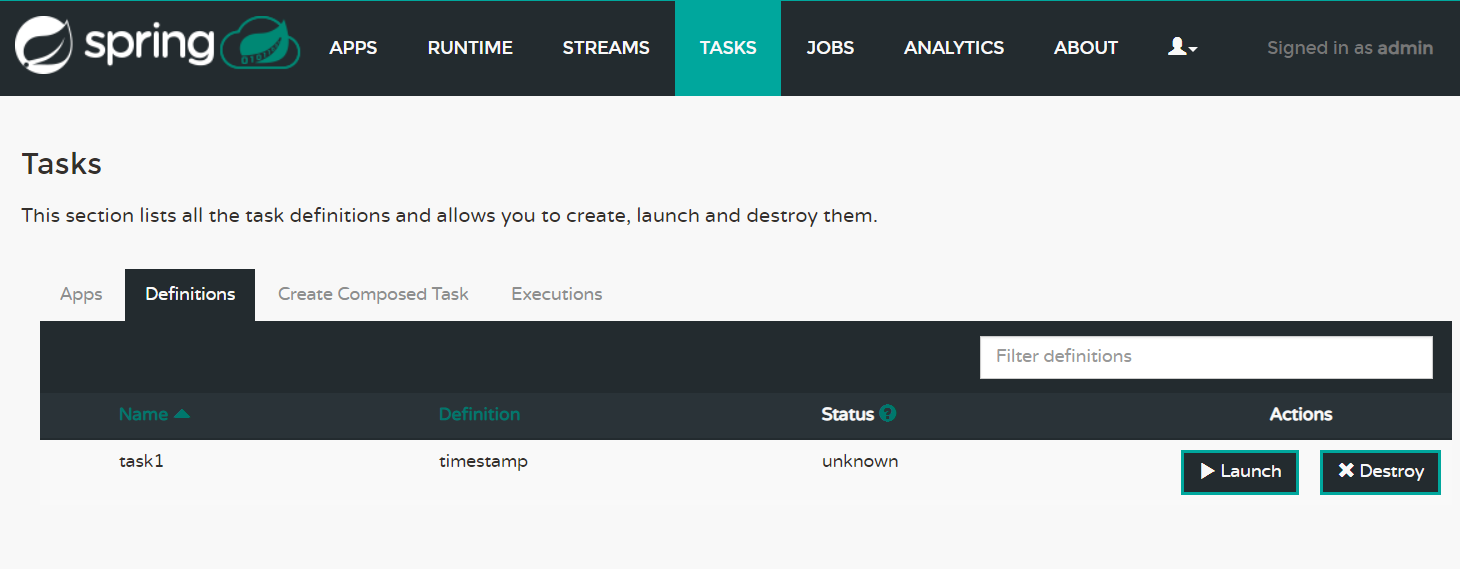详细参考
https://donovanmuller.blog/spring-cloud-dataflow-server-openshift/docs/1.2.1.RELEASE/reference/htmlsingle/
注意事项:
Openshift上需要部署service catalog
部署步骤
1.建立项目
#oc login -u admin #oc new-project scdf --description="Spring Cloud Data Flow"
2.部署模板
官方材料一般都有问题
curl https://raw.githubusercontent.com/donovanmuller/spring-cloud-dataflow-server-openshift/v1.2.1.RELEASE/src/etc/openshift/install-templates.sh | bash
我的做法是,把install-templates.sh下载下来,然后按照sh脚本步骤一步一步部署
#!/usr/bin/env bash # This script downloads the Data Flow Server for OpenShift templates and uploads them into # a specified project. The default project is `scdf` as per the Getting Started guide from the reference # documentation. However, the project can be specified as the first argument to this script. # # Usage: # # $ ./install-templates.sh [project name] # # or alternatively: # # $ curl -sL https://github.com/donovanmuller/spring-cloud-dataflow-server-openshift/releases/download/${version}/scdf-openshift-templates.zip \ # | bash -s [project name] [tag/branch] # project=${1:-scdf} version=${2:-v1.1.0.RELEASE} echo "Installing OpenShift templates (${version}) into project '${project}'..." curl -o /tmp/scdf-openshift-templates.zip -sL https://github.com/donovanmuller/spring-cloud-dataflow-server-openshift/releases/download/${version}/scdf-openshift-templates.zip unzip -o /tmp/scdf-openshift-templates.zip -d /tmp/scdf-openshift-templates shopt -s nullglob for template in /tmp/scdf-openshift-templates/*.yaml do echo "Installing template '$template'" oc replace --force=true -f $template done echo "Adding 'edit' role to 'scdf' Service Account..." oc policy add-role-to-user edit system:serviceaccount:${project}:scdf echo "Adding 'scdf' Service Account to the 'anyuid' SCC..." oc adm policy add-scc-to-user anyuid system:serviceaccount:${project}:scdf echo "Templates installed."
一看,说白了也就部署一堆templates,因为涉及到好几个镜像,可以按照pullimage.sh文件提供的镜像预先下载
#!/usr/bin/env bash echo "Pulling images..." declare -a images=( "mysql:5.6" "redis:3-alpine" "donovanmuller/spring-cloud-dataflow-server-openshift:1.2.0.RELEASE" "rabbitmq:3-management" "digitalwonderland/zookeeper" "wurstmeister/kafka:0.10.2.1" ) for((i=0;i<${#images[@]};i++)) do echo "Pulling '${images[$i]}' - `expr $i + 1` of ${#images[@]}" docker pull ${images[$i]} done
因为我的OCP是个离线环境,因此下载完后push到本地的 registry

修改我们要用到的scdf-ephemeral-datasources-kafka-template.yaml,然后oc create -f,看到保证pod启动

那个metrics因为没有下载镜像,所以无法启动,暂时不理。
访问
http://scdf-kafka-scdf.apps.example.com/dashboard/index.html#/apps/apps 出现主界面

授权
oc create -f scdf-sa.yaml oc policy add-role-to-user edit system:serviceaccount:scdf:scdf oc adm policy add-scc-to-user anyuid system:serviceaccount:scdf:scdf
创建任务
启动客户端
[root@master ~]# java -jar spring-cloud-dataflow-shell-1.2.3.RELEASE.jar ____ ____ _ __ / ___| _ __ _ __(_)_ __ __ _ / ___| | ___ _ _ __| | \___ \| '_ \| '__| | '_ \ / _` | | | | |/ _ \| | | |/ _` | ___) | |_) | | | | | | | (_| | | |___| | (_) | |_| | (_| | |____/| .__/|_| |_|_| |_|\__, | \____|_|\___/ \__,_|\__,_| ____ |_| _ __|___/ __________ | _ \ __ _| |_ __ _ | ___| | _____ __ \ \ \ \ \ \ | | | |/ _` | __/ _` | | |_ | |/ _ \ \ /\ / / \ \ \ \ \ \ | |_| | (_| | || (_| | | _| | | (_) \ V V / / / / / / / |____/ \__,_|\__\__,_| |_| |_|\___/ \_/\_/ /_/_/_/_/_/ 1.2.3.RELEASE Welcome to the Spring Cloud Data Flow shell. For assistance hit TAB or type "help". server-unknown:>
server-unknown:>dataflow config server --uri http://scdf-kafka-scdf.apps.example.com --username user --password password Successfully targeted http://scdf-kafka-scdf.apps.example.com
这里注意要用user/password连上,用admin/welcome1是有问题的。
注册任务
按照官方文档,又是有问题的,后来自己下载下来然后用文件方式导入
dataflow:>app import --uri http://bit.ly/1-0-1-GA-task-applications-maven
因为只用到一个任务,所以先修改
[root@master ~]# cat timestamp1.task task.timestamp=docker:docker-registry.default.svc:5000/scdf/timestamp-task:latest
导入
dataflow:>app import --uri file:////root/timestamp1.task Successfully registered applications: [task.timestamp]
创建任务并运行
dataflow:>task create task1 --definition "timestamp" Created new task 'task1' dataflow:>task launch task1 Launched task 'task1'
在界面上看到一个task
